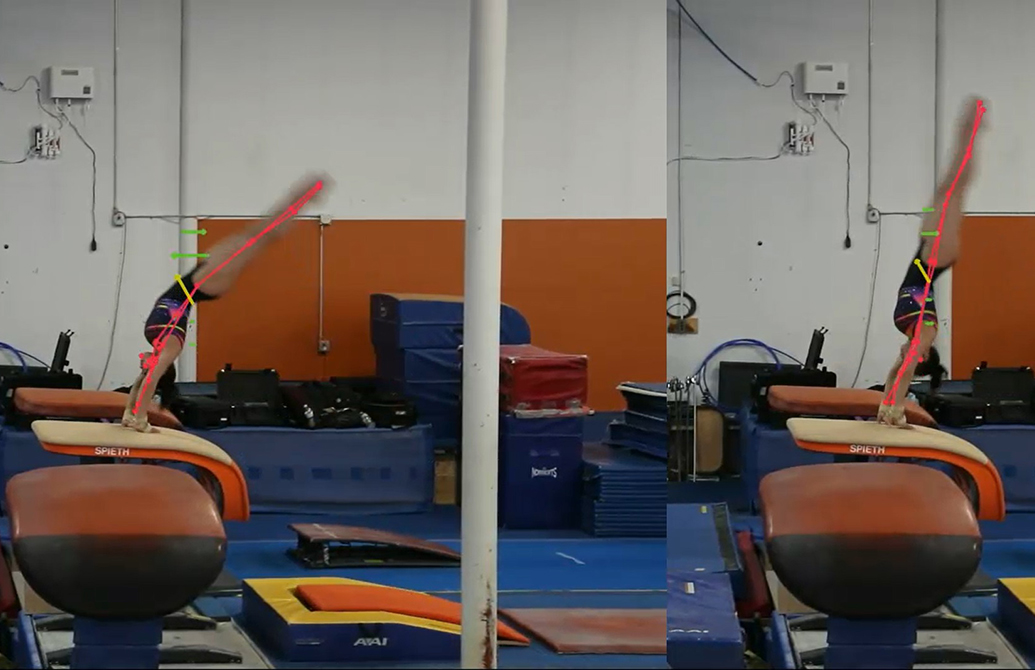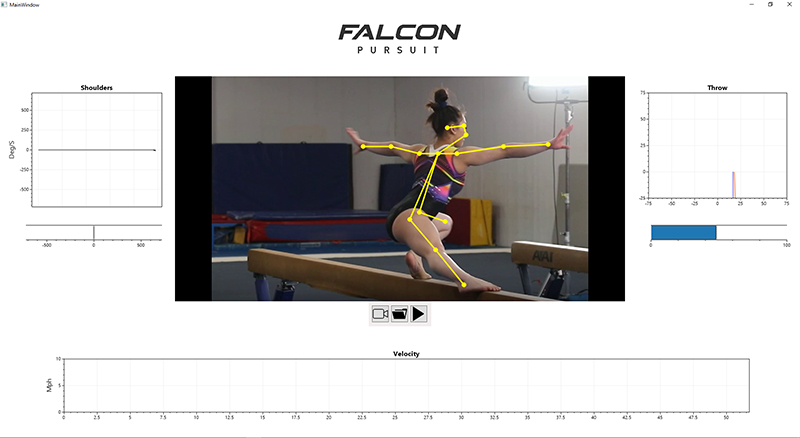
Athletes and coaches can benefit from advanced technologies that capture data to improve performance, such as systems that track fluid dynamics and body motion. Leveraging such systems presents challenges, however. The shape of the human body is complex, and capturing realistic simulations quickly and efficiently for fast feedback requires a system with significant processing power.
The human performance optimization company Falcon Pursuit has developed a system that combines 3D simulation software and artificial intelligence (AI)–driven data capture to efficiently produce full-body, 3D avatars that drive athletic performance improvements.
Building a 3D Avatar
Falcon Pursuit’s system uses 3D point cloud data and a library of high-fidelity avatars to analyze how athletes move in 3D space, with accurate computational air and fluid monitoring. To begin the process, an athlete steps inside the company’s AVA kiosk for 3D scanning. The kiosk holds seven 3D sensors and four board-level color cameras. The sensors, cameras, and Falcon Pursuit’s Avatar Rendering Engine (ARE) software run on a Nuvo-7000 PC with an i7 8700 TE processor from Intel,16 GB of memory, and a GTX 730 Ti GPU from NVIDIA designed and provided by CoastIPC.
A system operator selects a fully rigged base avatar, complete with a full structure of muscles and bones, from the software’s library, and the point cloud from the scan wraps around the “skin” of the selected avatar. After saving the avatar, the software removes the point cloud to reduce processing requirements, since tracking each individual piece of data is no longer necessary. Doing so allows the system to maintain the athlete’s complex shape and accurate movements.
Avatars can be configured into hypothetical stances to test best methods of athletic performance, or they can completely match the athlete’s performance captured on 2D video. The avatars created by the Falcon Pursuit system deliver a new level of accuracy and flexibility for analyzing performance, drag, and other key performance indicators in 3D space. In just a few minutes, the system delivers invaluable insights to coaches and athletes that can be used for training strategies.

Path to Olympic Gold
Prior to the 2021 Olympics, a gymnast and her coaches used Falcon Pursuit’s technology to obtain advanced AI body motion analytics in beam, floor exercise, uneven bars, and vault training. The gymnast went on to win an Olympic gold medal and now uses data from the technology for her collegiate training.
For questions on this technology or the industrial PC that helped power it, contact us here or reach out at 866-412-6278.
